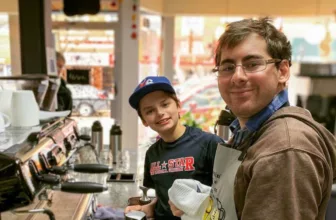
Attending college is a big decision to make and it’s a critical phase of life that many people are encouraged to pursue. If you're a student with a disability, applying to colleges can be intimidating, but the rewards make it worthwhile. While in college, you can make valuable connections and networks that will prove indispensable later on in your professional life. College also allows you to actively explore your interests and passions, which can help you form meaningful relationships while doing what you love most.
However, making friends and social connections often isn't easy for college students with disabilities and chronic illnesses. Some students may prefer to sit in the back of the class because they are shy about their conditions. This in turn makes them secluded and frustrated and they might interpret this as a lack of support from their peers and professors. They can also be reluctant to interact with others, negatively affecting their mental health. This article outlines a few tips for how college students with chronic illnesses and disabilities can work through their challenges and make friends who will help them weather the four years of college.
1. To make friends as a college student with a chronic illness or disability, join clubs and societies.
All colleges have clubs, societies, chapters, and organizations that host activities on campus. These clubs are based on various groups and interests, and they typically organize events and bring in speakers to talk about relevant topics. Clubs are a perfect avenue to meet and interact with others outside the classroom. By joining them, you can meet other students who share your interests, giving you a chance to form and keep friendships. You can definitely make very close friends this way — so go ahead and join that club/organization that interests you.
2. Form or join a support group for students with disabilities.
A support group consists of several people with common interests and concerns who provide each other with advice, comfort, and encouragement. If your college doesn’t already have a support group for students with disabilities or chronic illness, you may want to form one and then invite other students with similar conditions to join you. This would help you share your experience, relate your journey, and deal with your condition. This is a great way to form meaningful relationships. Being around your fellow support group friends can also help you boost your mood and sense of belonging, giving you the emotional stamina to envision a better future after college.
3. Find an on-campus job you can handle while managing your disability or chronic illness symptoms.
Some campus jobs are disability-friendly. These jobs involve interacting with fellow students, faculty, and support staff around the school. By doing so, you can make acquaintances along the way which may blossom into meaningful friendships later. And the cherry on top is that you get to earn money and gain valuable experience and skills too. Some jobs also count towards your internship requirement, which will save you a lot of time that would otherwise be spent at off-campus internships.
4. If you can't commit to a job due to time or your health, volunteer on campus or with a student group.
If you are able and willing, you might consider volunteering as a way to meet and make friends in college. Most colleges have a freshman’s fair at the beginning of the year. Attending such fairs would help you find out what you might be interested in and see if volunteering opportunities are available. You might not even have had an interest before in that particular area, but trying something out of your comfort zone is a sure bet to make friends and the most out of your college life. Volunteering also helps you to be active outside your personal life and that’s one way to exercise and feel better. So go ahead and sign up for a volunteering opportunity in order to have an enriching experience.
5. Develop new hobbies as a college student with a disability or chronic illness.
Hobbies are one of the underrated ways of making friends. Hobbies happen when we are relaxing; therefore, it is easier to find more people willing to engage since both of you are essentially taking a break. So developing new hobbies that are people-centric can help you interact with others much more easily compared to introverted hobbies. Hobbies can help you to be a more outgoing person and also help you with your socialization skills. Some hobbies can also help you to be self-sufficient and motivate you to do more activities with others instead of shying away. Try new hobbies today.
6. Get to know students with similar conditions.
Students who share your disability or chronic illness are better suited to empathize with you than those who aren’t. So, it is much easier to confide in them since they fully understand you, and also at the same time, they share your experience with your conditions. Forming a clique with them would also help you cope with both college life and also your condition as well. So go ahead and start forming a rapport with them and watch your college life flourish.
Photo by Brooke Cagle on Unsplash
Freelance Writer







